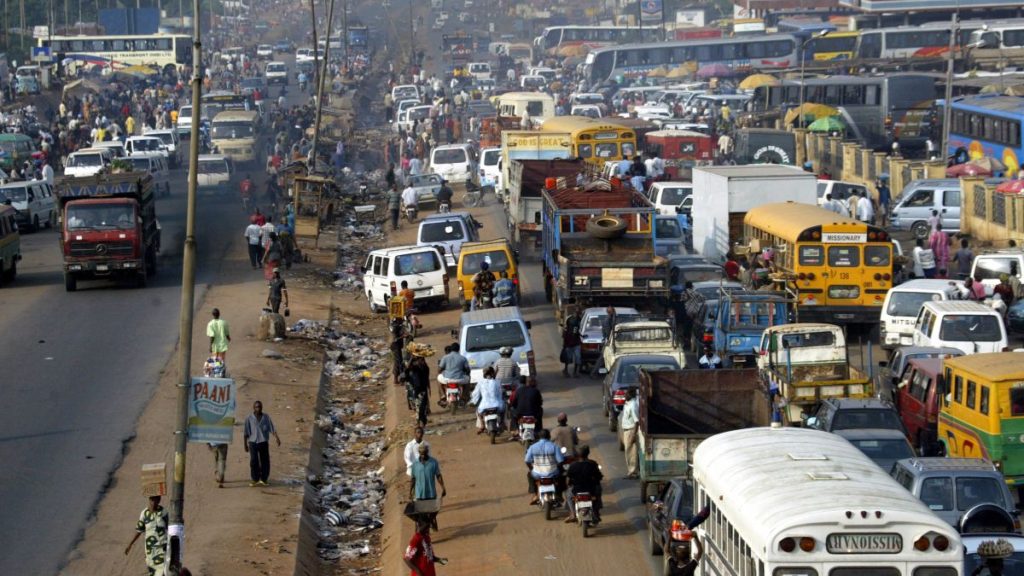The Nigerian government has announced plans to reduce air pollution by establishing air quality monitoring stations across the country, aiming to create a reliable database for informed policy-making and environmental management. These stations will be supported by a mobile app that provides real-time Air Quality Index data for major cities across Nigeria.
Speaking at a press conference in Abuja to mark this year’s International Day of Clean Air for Blue Skies, Nigeria’s Minister of State for Environment, Dr. Iziaq Salako, highlighted the country’s commitment to reducing air pollutants by 50% globally by 2030.
Dr. Salako emphasised the urgent need for action to address the current high levels of air pollution, warning of severe consequences for public health, the economy, and the environment if the situation is not reversed. He cited data from the United Nations Environment Programme (UNEP), which estimates that air pollution costs the global economy $8.1 trillion annually, equivalent to 6.1% of global GDP.
The Minister also revealed that the government is working with stakeholders on developing a National Policy on Air Quality Management and a youth-led National Clean Air Programme. This initiative will involve celebrities and influential figures as Clean Air Ambassadors, with the National Clean Air Campaign #BreatheEasyNigeria set to launch soon.
Dr. Salako called for increased awareness of the importance of clean air for human health, productivity, and economic growth. He noted that air pollution is now regarded as the world’s largest environmental health risk, with 99% of the global population breathing polluted air, leading to dire consequences.
He stressed that the challenge of air quality management is widespread across Nigeria, with human activities being the main driver of pollution. To address these issues, the government is establishing a national framework to guide states in setting up vehicular and generator emissions testing centres, in line with standards developed by the National Environmental Standards and Regulations Enforcement Agency (NESREA) and the Standards Organization of Nigeria.
The Minister announced the commencement of a pilot Quality Assurance/Quality Control (QA/QC) Industrial Emission Monitoring Scheme, aimed at enhancing the country’s capacity to manage and reduce industrial pollution. A national rollout of this scheme is planned in the coming days.
Dr. Salako also highlighted that Nigeria faces significant air pollution challenges, ranking as the third most polluted country in Africa, according to the 2021 World Air Quality Report. In 2023, the average PM2.5 concentration in Nigeria was 4.8 times higher than the World Health Organization’s recommended levels. He pointed to vehicular emissions, illegal refining, gas flaring, and refuse burning as major contributors to the country’s air pollution problem.
He urged all levels of government to prioritise air quality management in their policies and programmes and called on Nigerian industrialists to ensure their production processes contribute to the solution rather than the problem.
The Permanent Secretary of the Federal Ministry of Environment, Mr. Ibrahim Kambari, represented by Mrs. Mariya Rufai, Director of Human Resource Management, emphasised the need for greater public awareness, particularly for vulnerable groups like the elderly, women, and children, who are most affected by air pollution.
Mrs. Rufai stressed that clean air is crucial for good health, a healthy environment, and economic productivity. She called for more extensive sensitisation campaigns to educate the public on the dangers of air pollution and the need for preventive measures.
Dr. Yakubu Mohammed Baba, Registrar of the Environmental Health Council of Nigeria (ECHON), urged all agencies and departments under the Ministry to work together to address the challenges of air pollution, recognising the vital importance of clean air for human health and the environment.
The International Day of Clean Air for Blue Skies, established by the United Nations General Assembly in 2020, aims to raise awareness of the importance of clean air for human and environmental health, productivity, and economic growth.

